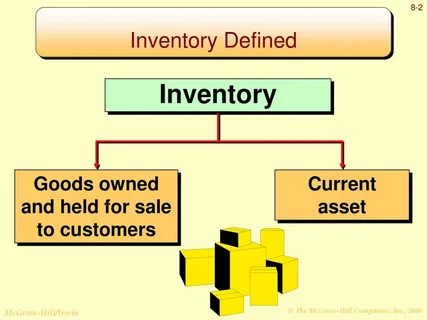In the dynamic world of e-commerce, understanding the intricacies of financial management is crucial for success. Among these intricacies, the classification and management of assets stand out, particularly when it comes to inventory. A common question that arises in this context is: Is inventory considered a current asset? Moreover, how does this classification impact e-commerce fulfillment services? Let’s dive into these questions to provide clarity and insight.
What is a Current Asset?
A current asset is any asset that is expected to be converted into cash within one fiscal year or one operating cycle, whichever is longer. Current assets are crucial for the day-to-day operations of a business as they are used to fund short-term obligations and operating expenses. Examples include cash, marketable securities, accounts receivable, and, notably, inventory.
Inventory as a Current Asset
Inventory, which comprises finished goods, work in progress, and raw materials that a business intends to sell, is indeed classified as a current asset. This classification is because inventory is expected to be sold within a year, converting it into cash or accounts receivable. For e-commerce businesses, inventory plays a pivotal role in operations and financial strategy. It represents a significant portion of their current assets and is directly linked to sales and revenue generation.
The management of inventory as a current asset is crucial. It requires a delicate balance: too much inventory can tie up valuable financial resources, whereas too little can lead to stockouts and lost sales. Effective inventory management thus becomes a cornerstone of operational efficiency and financial health for e-commerce businesses.
The Role of E-Commerce Fulfillment Services
E-commerce fulfillment services play a vital role in managing inventory as a current asset. These services encompass the entire process of handling goods from the point of sale to delivery to the end customer. Efficient e-commerce fulfillment services ensure that inventory levels are optimized, storage costs are minimized, and goods are delivered promptly to customers. This not only impacts the liquidity and cash flow of the business but also enhances customer satisfaction and loyalty.
By integrating advanced inventory management systems, e-commerce fulfillment services provide real-time data on stock levels, enabling businesses to make informed decisions on purchasing and production. This agility in inventory management is critical for e-commerce platforms, where market demand can fluctuate rapidly.
The Impact on Financial Health and Growth

Understanding that inventory is a current asset and leveraging e-commerce fulfillment services for optimal inventory management can have a profound impact on the financial health and growth of an e-commerce business. Efficient inventory management contributes to a healthier cash flow by reducing unnecessary capital investment in stock and minimizing storage and obsolescence costs.
Furthermore, by ensuring that inventory levels are aligned with demand, businesses can improve their sales potential and customer satisfaction levels. This, in turn, can lead to increased market share and revenue growth. In essence, the strategic management of inventory as a current asset, supported by effective e-commerce fulfillment services, is a key driver of competitive advantage and business success in the digital marketplace.
Read More: Ultimate Guide to Printing Shipping Labels: UPS, USPS, and More
FAQs:
Q 1: What Are E-Commerce Fulfillment Services?
Answer: E-commerce fulfillment services encompass the entire process of receiving, processing, packing, and shipping orders to customers in the e-commerce space. These services are designed to optimize the logistics and delivery of products, ensuring that customers receive their purchases quickly and in perfect condition. By leveraging such services, e-commerce businesses can improve operational efficiency, reduce overhead costs, and enhance customer satisfaction.
Q 2: Why Is Inventory Considered a Current Asset?
Answer: Inventory is classified as a current asset because it is expected to be sold or converted into cash within one fiscal year or operating cycle. For e-commerce businesses, inventory directly contributes to sales and revenue generation, making effective inventory management crucial for maintaining liquidity and funding day-to-day operations.
Q 3: How Can Effective Inventory Management Impact My E-Commerce Business?
Answer: Effective inventory management ensures that your business maintains optimal inventory levels, balancing the need to meet customer demand without overstocking. This can lead to reduced storage costs, minimized losses from unsold inventory, and improved cash flow. Moreover, efficient inventory management, supported by robust e-commerce fulfillment services, can significantly enhance customer satisfaction by ensuring timely delivery of products, ultimately contributing to increased sales and business growth.
Conclusion
In conclusion, inventory is indeed classified as a current asset, playing a critical role in the financial and operational dynamics of e-commerce businesses. The management of inventory, particularly through e-commerce fulfillment services, is central to maintaining financial liquidity, ensuring customer satisfaction, and driving growth. As e-commerce continues to evolve, the strategic importance of inventory management and fulfillment services will undoubtedly increase, underscoring the need for businesses to adopt efficient and scalable solutions in these areas.

